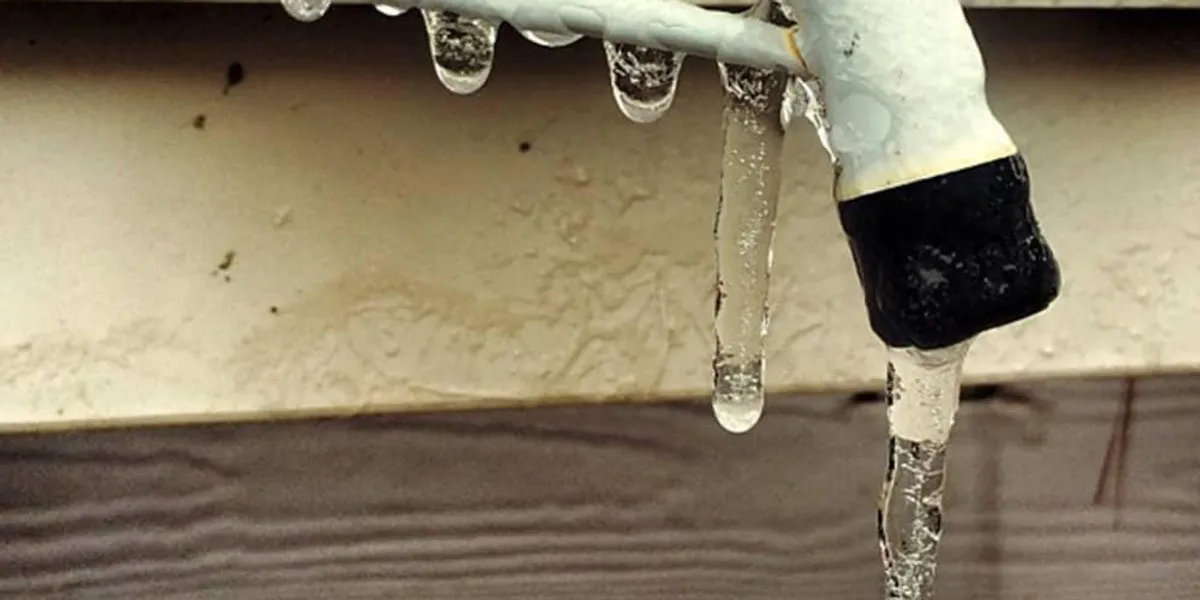Ways to Prevent Frozen Plumbing in Winter: Pro Advice
Ways to Prevent Frozen Plumbing in Winter: Pro Advice
Blog Article
Listed here below yow will discover some excellent material pertaining to How to prepare your home plumbing for winter weather.

Winter can ruin your plumbing, particularly by freezing pipes. Right here's just how to stop it from taking place and what to do if it does.
Introduction
As temperatures drop, the risk of frozen pipes increases, possibly leading to costly repair work and water damage. Understanding how to prevent icy pipelines is vital for house owners in chilly climates.
Prevention Tips
Shielding at risk pipes
Wrap pipelines in insulation sleeves or utilize heat tape to shield them from freezing temperatures. Focus on pipelines in unheated or exterior areas of the home.
Heating techniques
Keep indoor rooms properly heated, especially locations with pipes. Open up cupboard doors to allow warm air to flow around pipelines under sinks.
Exactly how to determine icy pipes
Search for reduced water flow from faucets, uncommon smells or noises from pipelines, and noticeable frost on subjected pipelines.
Long-Term Solutions
Structural modifications
Take into consideration rerouting pipelines away from outside wall surfaces or unheated locations. Include extra insulation to attic rooms, cellars, and crawl spaces.
Updating insulation
Invest in high-grade insulation for pipelines, attic rooms, and wall surfaces. Proper insulation assists preserve consistent temperature levels and lowers the danger of frozen pipes.
Safeguarding Exterior Plumbing
Yard hose pipes and outdoor faucets
Disconnect and drain garden pipes prior to winter season. Mount frost-proof faucets or cover outside taps with insulated caps.
Comprehending Icy Pipes
What causes pipelines to freeze?
Pipelines ice up when exposed to temperature levels below 32 ° F (0 ° C) for prolonged durations. As water inside the pipelines freezes, it broadens, taxing the pipeline wall surfaces and potentially causing them to rupture.
Dangers and problems
Icy pipes can result in water system disturbances, home damage, and costly fixings. Ruptured pipelines can flooding homes and trigger comprehensive structural damage.
Signs of Frozen Piping
Identifying frozen pipes early can stop them from bursting.
What to Do If Your Pipes Freeze
Immediate activities to take
If you think frozen pipelines, keep faucets open up to alleviate pressure as the ice thaws. Utilize a hairdryer or towels soaked in warm water to thaw pipes slowly.
Final thought
Avoiding frozen pipes needs aggressive steps and fast feedbacks. By understanding the reasons, indicators, and preventive measures, property owners can secure their pipes during cold weather.
6 Proven Ways to Prevent Frozen Pipes and Protect Your Home
Disconnect and Drain Garden Hoses
Before winter arrives, start by disconnecting your garden hoses and draining any remaining water. Close the shut-off valves that supply outdoor hose bibs and leave the outdoor faucet open to allow any residual water to drain. For extra protection, consider using faucet covers throughout the colder months. It’s also important to drain water from any sprinkler supply lines following the manufacturer’s directions.
Insulate Exposed Pipes
Insulating your pipes is an effective way to prevent freezing. Pipe insulation is readily available at home improvement stores and is relatively inexpensive. Pay close attention to pipes in unheated areas such as the attic, basement, crawl spaces, or garage. Apply foam insulation generously to create a buffer against the cold. You can also wrap your pipes in heat tape or thermostat-controlled heat cables for added warmth.
Seal Air Leaks
Inspect your home for any cracks or openings that could let in cold air. Seal any holes around the piping in interior or exterior walls, as well as the sill plates where your home rests on its foundation. Additionally, make sure to keep your garage door closed unless you’re entering or exiting. Leaving it open creates a significant air leak that can lead to frozen pipes.
Allow Warm Air Circulation
During cold snaps, it’s essential to allow warm air to circulate evenly throughout your home. Leave interior doors ajar to promote better airflow. Open kitchen and bathroom cabinets to help distribute heat consistently around the rooms. If you have small children or pets, be sure to remove any household chemicals or potentially harmful cleaners from open cabinets for safety.
Let Faucets Drip
A small trickle of water can make a big difference in preventing ice formation inside your pipes. When temperatures drop significantly, start a drip of water from all faucets served by exposed pipes. This continuous flow helps prevent the water from freezing. Additionally, running a few faucets slightly can relieve pressure inside the pipes, reducing the chances of a rupture if the water inside does freeze.
https://choateshvac.com/6-proven-ways-to-prevent-frozen-pipes-and-protect-your-home/

As a devoted reader about Helpful Tips to Prevent Frozen Pipes this Winter, I was thinking sharing that excerpt was really helpful. Don't hesitate to pause to share this entry if you enjoyed reading it. We love reading our article about How to Prevent Your Pipes From Freezing.
Get A Quote Report this page